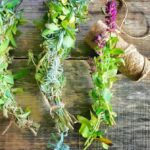With the constant rise in landfills and land pollution, we are forced to acknowledge the damage we are doing every day to the Earth’s topsoil layer by using plastic products. They cannot degrade naturally and most of them are discarded after just one use, without a reduction in the total usage or manufacture. Keeping this highly concerning fact in mind, Notpla has come up with edible water pods. This London-based company aims at removing plastic waste globally in every form and is slowly rising to glory.

What Is the Edible Water Pod?
The Skipping Rocks lab used easily available technology to create packaging material from seaweed to develop their first product, Ooho. Ooho is a small fist-sized blob of water encased in a film made from seaweed. This type of seaweed can grow up to 1m2 each day and is completely natural and biodegradable. It does not hamper the normal growth of food crops, can grow in any kind of water without fertilizer, and can even remove the oceanic acidity. Notpla packaging made from this seaweed can naturally degrade in 4-6 weeks, unlike plastics and micro-plastics that are left behind for centuries. You can also compost it at home. If disposed of in the garbage, it does not contaminate plastic recycling as it is self-destructible.
This naturally biodegradable double-membrane of Ooho is made by a simple process called ‘spherification’, which is a very popular trend in molecular gastronomy. It involved the use of two compounds – sodium alginate and calcium chloride. Sodium alginate is a natural product that can be easily obtained from brown seaweed. The technique involves freezing of water and gently dipping the ice blob first into sodium alginate followed by calcium chloride. The product is a calcium alginate gel that encapsulates the water inside after the ice melts. Calcium alginate is completely safe for human consumption. It cannot be normally digested and is therefore classified as a dietary fiber.
The Origin of Notpla
Ooho was the brainchild of Innovation Design Engineering students Rodrigo Garcia Gonzalez and Pierre Paslier in 2013. After gaining some popularity through social media, they collaborated with Climate KIC and began adding chemical engineers and chemists to their team for small-scale manufacturing and testing of Ooho at marathons, local festivals, and eateries that provide takeaway.
Post their local success, they increased the manufacture to a large extent and on obtaining funding through Crowdcube, they constructed their first manufacturing machine to set up a scalable manufacturing line in London which can produce 100 Ooho pods in less than ten minutes. On obtaining funds from Sky Ocean Ventures in 2018, they moved on to their second product and increased the size of their company to have dedicated teams for various components such as manufacture, R&D, and marketing. They named the biodegradable seaweed-based packing material as Notpla and the technology to produce it is under a Creative Commons license, which means that it can be accessed and used by anyone.
Other Sustainable Products
The Skipping Rocks lab wants to expand its production for developing and commercializing other similar products in which the Notpla technology can be implemented. Currently, they are trying their hand at commercializing pods for eateries that can contain liquids such as ketchup, mayonnaise, mustard, fruit juices, cocktails, or even salad dressings. They also want to make a supermarket-version of the Ooho which will have a nature-friendly layer that can be peeled off and discarded like a fruit. They have even developed technology to create a film called the Notpla liner. This is their latest invention that can be layered as a lining on cardboard. This liner is made of plastic manufactured from corn or oil, both nature-friendly biodegradable materials. This can be used in takeaway containers which then become completely recyclable.
Their plans include developing heat-sealable films for the packaging of powders and all kinds of dry food. They can make them in the form of wrappers or packets and they can be soluble or insoluble in water, depending on the requirement and usage. They are also trying their hand at developing sustainable sachets for products other than edibles, such as hardware. These will be made using Notpla and will start their natural biodegradation as soon as they are discarded into the soil. Another product that they are working on is Notpla nets that can replace the plastic ones used in the packaging of fruits and vegetables.
Success Story
The Fat Pizza, a fast-food restaurant in the UK, is one of their first customers to replace their ketchup sachets with the Ooho ketchup pods. On World Water Day, they set up a stand in Selfridges and gave out biodegradable containers in different colors to promote a plastic-free lifestyle. They won the Environmental World Technology Award and the Lexus Design Award in 2014. In 2015, they won the SEA award followed by the UK Energy Globe Award in 2016. In April 2019, they carried out their largest trial at the London Marathon, distributing more than 30,000 Ooho pods. Their innovative, easy, nature-friendly, and practical solutions have gained worldwide appreciation.
Can it potentially completely replace plastic bottles and packaging? Well, we certainly hope so. Considering the support that they have gained, the Skipping Stones lab seems to be moving in the right direction towards a sustainable plastic replacement technology. With the low raw material costs and nature-friendliness of the Ooho water pods, their gaining reputation is great news for the health of our planet.
To learn more about eco-tech in the news, read more here!








Leave A Reply!